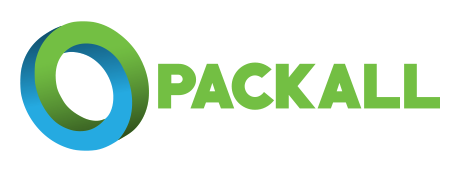Circular economy shapes the future skills needed in plastic packaging industry
The plastic packaging industry is changing fast. In Finland, the PackAlliance project’s workshop in April focused on the competency of plastic packaging operators on their way to circular economy and the training needed over the coming ten years. The workshop leader and Lecturer Nina Kukkasniemi (Tampere University of Applied Sciences) said that is a need for discussion and working together on themes like: What are the new materials? How design and produce in ecological manner? How can environmental load and resource usage be reduced? How involve the public for recycling and ecological thinking? How do we turn the packaging waste into valuable substances and products?
Legislation around plastics is changing, EU is considering a plastic tax, and the green economy program suggests to promote the circular economy restricting disposable items following the 4R rule, i.e. reduce, reuse, recycle and recovery. Reijo Kauppi (Pyroll) said that plastic is a valuable raw material also after the end of its’ actual use and that need to take into account littering potential, recyclability, carbon footprint, reuse and renewable raw materials. He would add to 4R rethink and renew. Antro Säilä, CEO of the Finnish Packaging Association, underlined the need to increase the recycling of materials throughout society and highlighted the change in the attitude to plastics caused by coronavirus, because packaged products are a viable way to avoid the virus.
Finland has a good level of raw material skills in the field but its weakness is the lack of pragmatism in education legislation, and the teaching methods have to be reformed. The Project Manager, Lecturer Marita Hiipakka said that during the project students will also collaborate with businesses and help solve authentic problems for companies. Jarmo Aspelin, Managing Director of the Aspelin Group, encourages the whole sector to make plastics’ recycling matters as simple as possible both on national and European level, in order to improve the overall image of plastics. PackAlliance project will create a European hub network, where cooperation can be further enhanced.
Twenty participants from different companies from packing sector participated. They were invited to fill a SWOT analysis scheme in order to identified skills needs for four themes identified in the project: new materials and biomaterials; ecological design and new manufacturing processes; citizen interaction and eco-marketing; and plastic packaging waste management and recycling.
Participants feel that there is a strong desire to understand the differences of plastic, their use and recyclability on a global level and, as Special Designer Eija Syrjämäki, summed up the knowledge is shared across international networks. The group discussed about the drastically reduction in plastics education, over the past few decades. Sauli Eerola (Muovipoli Oy) said that it should be increased, in order to promote the development of recycling and the takeover of bioplastics. Participants see the lack of common terminology among professionals in the field and recommend adopting common and clear instructions on how to recycle packaging and how to communicate it to consumers. Media plays a big role in sharing truthful information. The development of new materials alone is not sufficient but also the technology for the re-use of plastic are needed. Students should be used to innovate new practices. It is clear that the production lines already implemented may limit enthusiasm for moving to policies consistent with sustainability. Political decision-making must be involved in order not to make decisions that are harmful to the environment. Exceptions like coronavirus demonstrated that mechanical recycling can be challenging under exceptional circumstances.
Finally, looking at the future talents, the most important expectation is a holistic understanding of the value chain. Life cycle thinking, collaborative competence and knowledge sharing skills should be in the core of future workforce learnings.








